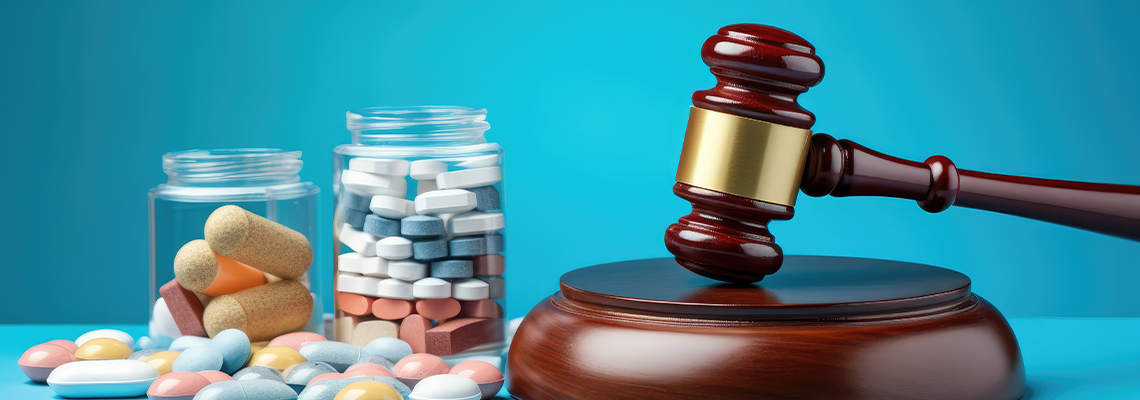When facing criminal charges, understanding the difference between a felony and a misdemeanor is critical. Felonies and misdemeanors carry very different consequences, and knowing what is at stake can make a big difference when planning a defense.
Charged With a Crime?
Work with a Westchester Criminal Defense Lawyer Who Can Fight for You
Once the authorities have placed you under arrest for committing a crime, you need to remember two important things. First, talking at length to the authorities will only do your case harm—there is nothing you can say to have them undo your arrest, and far too many people keep talking to the police when they are under no obligation to do so.
The authorities will likely keep asking you questions, even after you have been arrested. They will elicit as much information as you are willing to give. It is critical that you let them know you will not speak to them. Once you have been placed under arrest, do not answer questions or speak at length to the authorities. The only thing you should say to the police is that you want to speak to your attorney.
Schedule your free consultation with the Westchester criminal defense lawyer at the Law Office of Michael D. Litman by calling us or contacting us online.
What to Do after Being Charged with a Crime
Your biggest priority is contacting your attorney, so they can begin work on your case. The best criminal defense is one that begins as soon as possible. Your lawyer will immediately get to work on your behalf, dealing with the authorities and making sure that your rights are protected. They will field any questions the police might have for you. An attorney’s experience will be invaluable in the hours following your arrest.
When you have been charged with a crime, tell the police that you want to speak to your criminal defense lawyer. Beyond that, anything you say will be leveraged against you. Your attorney will then advise on what you should and shouldn’t do.
What to Avoid After Being Charged with A Crime in New York
Speaking to the police after your arrest can have very damaging effects on your case, but that’s not the only thing to avoid after being charged with a crime. In the days, weeks, and months following your arrest, you should also avoid speaking about your case to anyone.
Keep these tips in mind after your arrest:
Keep quiet: One of the biggest mistakes people make is to chat about their situation with friends, co-workers, and family members. Once these people are put in the awkward position of knowing about your situation, they could be called as witnesses against you. It’s for their benefit as much as your own that you refrain from speaking at length about the charges against you.
Avoid social media: Never post a statement or even a casual reference to your difficulties to your social media accounts, as they will almost certainly be reviewed by prosecutors if the charges against you are serious, or if your case is going to trial. Even posts that are not directly related to your situation can be interpreted in unforeseen ways. It is in your best interest to stay away from social media entirely until your case is resolved. Don’t give the authorities any advantage by posting something unnecessary online.
Don't miss court: Make sure you attend all your court appearances, treatment appointments, and that you pay all fines in a timely manner. Avoid letting any appearances, hearings, or deadlines pass you by. While your attorney will remind you and do their best to make sure you are present for all court appearances and other important dates, the task of being present and on time is ultimately up to you. Missing important scheduled court appearances will greatly hurt your defense and may result in a warrant being issued by the court.
Listen to your lawyer: Remember that any advice given to you by your criminal defense lawyer should be followed closely. Your attorney is your first and last line of defense, and they will help you best position yourself for the most favorable outcome possible. Don’t forego their advice.
Finding Every Advantage in Your Case
There are several ways that criminal defense attorneys help their clients. By reviewing the details and circumstances of your arrest, we can verify whether or not your rights were observed by the authorities. If there were any oversights or breaches of the law on part of the police, we will make sure they are found. We will then go to work on building your case based on the specifics of your situation.
At the Law Office of Michael D. Litman, you can count on us to:
Take special consideration carry out a dedicated plan of action: No two defenses are the same. We base our strategies on years of experience and a deep knowledge of the law. If there is a way to have the charges against you dismissed, we will pursue that path. In some cases, charges against our clients can be lessened, sometimes as the result of a plea deal we reach with prosecutors. Whatever we determine is the best course of action, we will always make sure to proceed with your consent. We work for you, and we base our approach to your case on your wishes.
Keep you informed on our progress: As your advocate, we will answer any questions and address concerns you might have. Our clients know they can count on us for legal advice throughout the process. We keep in close contact with our clients, so they can be sure that they are always informed about where their case stands and what they can do to maximize their chances of a favorable outcome.
Protect your rights: Unfortunately, too many people accused of a crime either don’t know their rights or fall prey to common mistakes that dramatically hurt their defense. We do everything in our power to make sure that our clients are treated fairly and are given every opportunity to overcome the challenges they are facing.
Your criminal defense lawyer is your best ally when facing the many consequences of a criminal charge. We value the relationships we have with our clients, and we are committed to securing the best possible outcome for their case.
We offer free consultations. Call us to learn more about your situation and obtain an initial assessment of your case.
RECENT POSTS
Driving while intoxicated (DWI) charges in New York carry serious and lasting consequences. When someone pleads guilty or is convicted, the impact goes far beyond fines or jail time.




